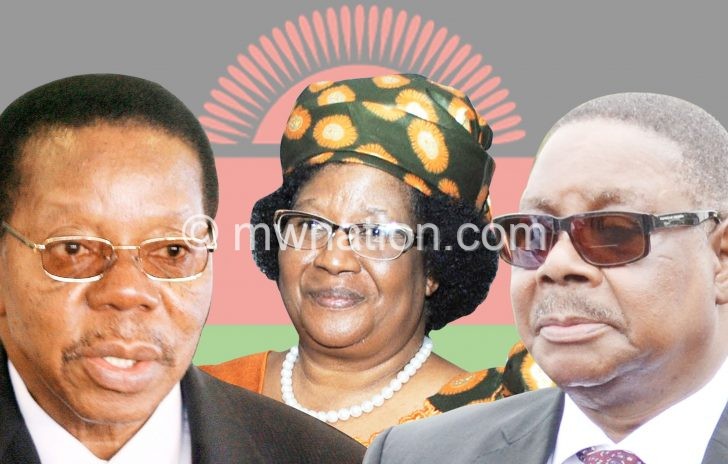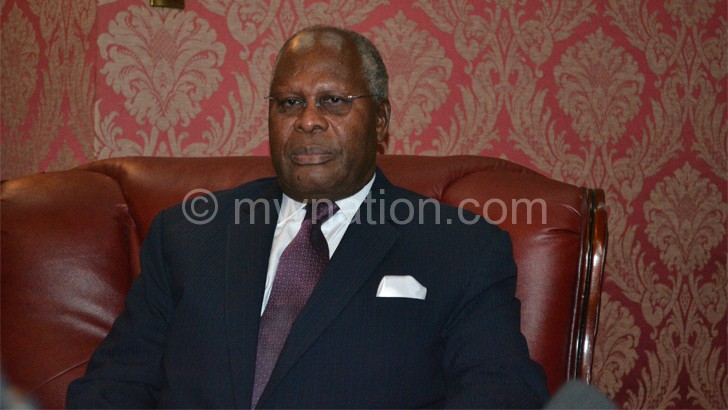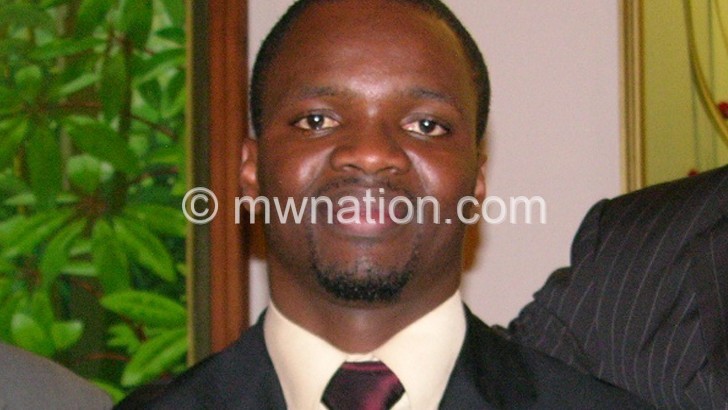Presidents abetting corruption—Report
- Leadership manipulates ACB, report alleges
Successive presidents in Malawi have been involved in, or abetted, corruption by riding on mutating governance systems that have prevented citizens, and even the Anti-Corruption Bureau (ACB), from holding them fully accountable.
That is the damning conclusion of a report published on Wednesday by the South Africa-based Open Society Initiative for Southern Africa and Africa Minds (Osisa) after it carried out a study in southern African nations.

The report was on the effectiveness of anti-corruption agencies in the region. It is aimed at informing policy-makers, the donor community, civil society and others on what could to be done to accelerate the fight against corruption and reduce its impact on democratic development.
But when we shared contents of the report with government yesterday, the reaction was swift and vehement.
“Osisa should withdraw this report, as it has insulted the Malawi Government and its citizens,” reacted a charged Minister of Information, Communication and Technology Nicholas Dausi.
“I think [these are] racist and apartheid findings. [The report] is derogatory to the Office of the President,” he added.

According to the study, since the onset of multiparty rule in 1993, new corrupt elites emerged that have been undermining democratic accountability, generally, and the fight against corruption, in particular.
“For the past 10 years, the elites of the different regimes in Malawi exploited this principle to their virtual advantage. Even the State presidents have been involved in corrupt practices and yet no one could hold the regimes accountable because these political elites have tended to mutate from one regime to another. It is only the political label that changes, but the players are largely the same,” the report states.
It adds that as the ruling party assumes more power and the executive increases its dominance in the political system, there is a serious erosion of both vertical and horizontal accountability, thereby legitimating undemocratic tendencies.
The study says State institutions such as the ACB, police, public media and the judiciary have come under attack from the executive, thus any attempt to fight corruption is seen by some as a way of gaining political mileage and settling political scores.

“It may be undermined by perceptions that it is merely usurping legitimate functions of anti-corruption institutions for political gain,” adds the report.
It states that the ‘Cashgate’ scandal that was exposed three years ago, after the looting of over K24 billion from public coffers in six months, illustrates the incestuous nature of political power and corruption in Malawi.
It also cites an example whereby payments were made to 16 companies, valued at K6.1 billion, where no evidence has been provided to support the provision of goods or services.
It, additionally, points to payments which were further made to two newly-formed companies, totalling K3.9 billion and notes other payments which were made at inflated prices, totalling K3.6 billion.
The report notes that the companies and public officers involved have included politicians across party lines, senior public officers, the executive, the military and the private sector.
“Even more concerning, [President Peter] Mutharika’s government is allegedly meddling in the ACB’s work against Bakili Muluzi, Malawi’s former president, who is accused of stealing $11 million in donor funds during his tenure between 1994 and 2004.
“Reyneck Matemba, the ACB deputy director, who was also lead prosecutor on the Muluzi trial, recused himself from the case, a move that observers saw as bowing to undue pressure from the government,” the report states.
It continues: “Many people see the president’s hand in shielding Muluzi, whose son, Atulepe Muluzi, is a key ally of Mutharika and is the leader of the United Democratic Front (UDF), an opposition party that is in coalition with the president’s party. In other words, protecting Muluzi is in the president’s political interest.”
In his vehement condemnation of the report, Dausi argued that it is unfair to rate Malawi’s high quality leaders and people, renowned and appreciated throughout the Southern Africa Development Community (Sadc), so poorly.
“There is no way an organisation that is being championed by a white man can insinuate that Malawi has produced corrupt presidents in the multi-party dispensation,” he fumed, adding that Osisa had used a wrong barometer in the study.
Presidential spokesperson Mgeme Kalilani said the report is baseless.
“As you can see, the report makes allegations about Malawi presidents’ involvement in corruption, and goes on to mention Cashgate as an example of a connection between the Executive, political power and corruption in Malawi,” Kalilani said.
He alleged that the head of the Executive and president of Malawi during the Cashgate period was Joyce Banda.
“Our take is that she is the most appropriate person to address those allegations.”
But a forensic audit conducted last year by RSM Risk Assurance Services LLP of the UK showed that government bank statements involving K236 billion between 2009 and 2014 indicated that 43 percent of the payments were not accounted for in the Integrated Financial Management System (Ifmis).
Kalilani said allegations that President Mutharika is shielding Bakili Muluzi in his corruption case are also untrue and baseless.
“The case of Dr. Muluzi versus the Republic has been in court for close to 10 years now. Over that period, it has out-lived presidents Bingu wa Mutharika and Joyce Banda.
“Peter Mutharika has only been president for two of those years; how do they even start to allege that it’s been Peter Mutharika who has been shielding him? I find the allegations unreasonable.” n





